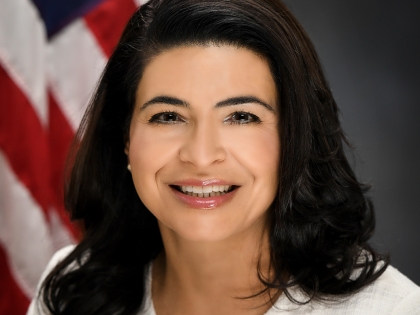
Domestic violence is on the rise in Nassau County

With more couples staying home because of Covid-19, domestic violence reports have risen. In 2020, there were over 13,000 reports of domestic violence filed with the Nassau County Police Department, which was slightly higher than 2019, according to The Safe Center, an organization that provides services to abuse victims.
According to reports from the New York City Mayor’s Office to End Domestic and Gender-Based Violence, there were nearly 106,000 intimate partner-related domestic violence incidents in New York City in 2020. The majority of the reports were filed by women of color, with Black women being the highest victims to report, followed by Hispanics as the second, according to ENDGBV.
Although the number of chronic domestic violence complaints has deceased by 328 from 2019 to 2020 in New York City, according to the NYPD, the number of domestic violence complaints on Long Island rose during the same time period. In Nassau, there were 130 cases of domestic violence reported in 2020 than 2019, according to the New York State Division of Criminal Justice Services.
The director of education at The Safe Center, Keith Scott, said the numbers do not accurately reflect all cases of domestic violence during the pandemic. Scott said he believes many abuse victims have not reported their abusers.
“Less reports have been made because people are fearful for their lives,” Scott said. “If they make a report and their abuser is standing right next to them, what’s going to happen?”
A recent case of domestic violence gained national media coverage after Gabrielle “Gabby” Petito from Blue Point, on Long Island, went missing while on a four-month road trip with her fiancé, Brian Laundrie. On Sept. 11, Nicole Schmidt, Petito’s mother, filed a missing person’s report with the Suffolk County Police Department after not hearing from her daughter for nearly two weeks. Petito’s death was ruled a homicide.
“It’s a terrible reminder that the signs of domestic abuse can be difficult to spot on the surface,” said New York State Sen. Anna Kaplan, a Democrat from North Hills, who has sponsored many bills on domestic violence. “It’s so important for everyone to learn how to spot the signs and know what to do to take action,” she said.
Additionally, Kaplan said she hopes people become aware of unspoken cues of abuse, especially on social media, like in the Petito case. Kaplan said victims often have trouble speaking up and asking for legal protections. “Domestic Violence Records for Prosecutors” is a recent bill passed by the Senate and co-sponsored by Kaplan that would, if passed in the Assembly and signed by the governor, would give prosecutors access to past orders of protection against an abuser. In October, Kaplan talked about the Petito case in “Virtual Domestic Violence Training” in partnership with The Safe Center.
Formerly known as the Nassau County Coalition Against Domestic Violence and the Coalition Against Child Abuse, Neglect and Domestic Violence, The Bethpage-based Safe Center changed its name in 2014. It serves 30,000 families through its education department.
“The Safe Center is the primary agency in Nassau County servicing all victims of abuse,” Scott said, “whether that abuse comes from domestic violence, sexual assault, human trafficking, child abuse or elder abuse.”
The organization has a 24-hour hotline that abuse victims can call if they need help. From there, The Safe Center will assess each individual situation. Victims can request services like emergency housing for their families and themselves.
“We can help someone within our shelters to provide stipends to them for rental assistance if they are fleeing an abuser and trying to get back on their feet,” Scott said.
Additionally, Círculo de la Hispanidad, in Hempstead, where nearly 50 percent of the community is Hispanic, also serves abuse victims.
The organization was created by Gil Bernardino, who experienced discrimination in Long Beach and wanted to create a change for Hispanic immigrants in Nassau County. Circulo was started for Spanish-speaking youth and families with a focus on victims of domestic violence. Bernardino received federal funding to provide services for victims of abuse and became the first organization in New York State to offer a hotline service. In 2020, New York went into lockdown, which resulted in many people losing their jobs. This affected the attendance to regular meetings at Círculo significantly.
“This was a crisis time, and a lot of people are still feeling the impact from that,’’ said Sarah Brewster, chief director of services and operations at Círculo de la Hispanidad. “It became very difficult for them because they were trying to do whatever they could to earn extra money or to find resources, so participating in a group during the day was not possible.”
Now that vaccines are available, Chana Pfeifer, a clinical therapist in West Hempstead, prefers to see her clients in person. Pfeifer offers this advice to family members and friends who want to help someone who is experiencing domestic violence:
“Try to find a safe place to communicate with the person who is experiencing that and ask. A lot of times we dance around it and we don’t touch it. That could be so dangerous,” Pfeifer said. “Say, ‘I’m really worried about you. Is there something I could do to help? Are you being emotionally or physically abused’?”
Pfeifer said the pandemic has caused domestic disputes to rise because of couples spending more time together.
“Most of us therapists are inundated. I don’t even have room for the new calls that I got recently. I’ve never been this busy in my entire life,” Pfeifer said. “It doesn’t feel good. It feels like people have more needs. This pandemic has been so long, and it has had a lot of negative effects on people.”



